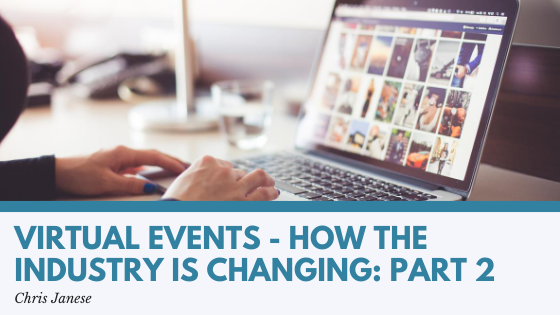Around the world, the event industry has experienced unprecedented disruption. Earlier in the year, the pandemic resulted in the mass cancellation of public and private events. In this technological age, adaptation and innovation are essential, especially in the face of unusual circumstances such as these. Virtual events have existed before the pandemic, but the demand has dramatically risen in its wake.
Conferences have experienced a significant shift from physical events to virtual ones. Similarly, private events like concerts and speakers have also experienced a chance to be better suited to a distanced, digital landscape.
Fortunately, there are many benefits to virtual events beyond the current restrictions on travel and gatherings. As the pandemic continues to influence the limitations of gatherings, the industry will continue to change.
While events like conferences are relatively well-suited to digital transformation, when it comes to events that are more geared toward the entertainment sector, the shift has been met with some hesitance. However, existing platforms, especially on social media, have proven to be remarkably effective in simplifying and enacting such a change. From the “Live” features on Facebook and Instagram to the advertising and engagement potential of profiles like Tik Tok, social media has already paved a path for events to be hosted digitally.
Private concerts, as well as speaker events, often rely on and benefit from audience engagement. Virtual events inherently lack the physical presence and subsequent energy of a live audience, but utilizing social media and other innovative platforms can supplement some of these critical characteristics to enhance the event. From allowing live comments and reactions and ensuring all viewers are visible to the performers (and vice versa) to only permit emoji-based reactions during the event, virtual events make do in their attempts to engage their audiences.
The shift to virtual events has come naturally for much larger events, and a similar shift will continue to occur for private events, as well. Utilizing passcode-protected platforms to host such events, creating private accounts to host them on social media, and cultivating a personalized, optimized event to appeal to the changing needs and desires of the audience are all ways that private events are changing.
Initially, many in the event industry chose to postpone their events rather than cancel them altogether. With a broad digital landscape available, many organizers realize that the third option—making the switch to virtual events—is more appealing.
To read part one about how the events industry has been affected, please see last month’s blog!
